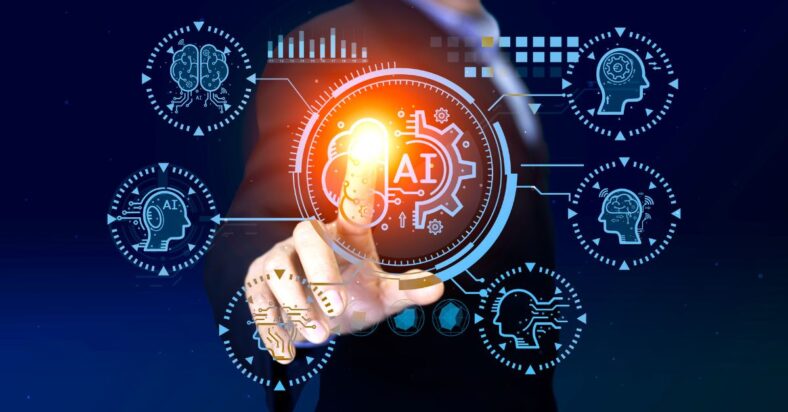In the realm of education, Artificial Intelligence (AI) is heralding a transformative era, reshaping traditional learning landscapes and opening doors to innovative approaches. This isn’t just about technological integration; it’s a narrative of how AI innovations are redefining the way students learn, educators teach, and educational institutions operate.
1. AI in Personalized Learning: Tailoring Education to Individual Needs One of the remarkable impacts of AI in education is its ability to facilitate personalized learning experiences. AI algorithms analyze individual learning patterns, preferences, and strengths, enabling educators to tailor lesson plans and materials to each student’s unique needs. This approach fosters a more engaging and effective learning environment, catering to diverse learning styles and pacing.
The integration of AI in personalized learning holds the potential to address individual learning gaps and enhance overall educational outcomes.
2. AI Tutoring Systems: 24/7 Support for Students AI-powered tutoring systems are revolutionizing the concept of academic support. These systems provide students with round-the-clock assistance, offering help on specific topics, guidance on homework, and instant feedback on assignments. By leveraging natural language processing and machine learning, AI tutoring systems adapt to individual student progress, ensuring a customized learning experience.
The impact extends beyond traditional classroom hours, providing continuous support and reinforcement for students at their own pace.
3. Gamification and AI: Making Learning Fun and Engaging AI innovations are infusing gamification elements into educational platforms, making learning more interactive and enjoyable. Game-based learning, powered by AI algorithms, adapts to students’ progress, challenges them at appropriate difficulty levels, and provides instant feedback. This approach not only enhances student engagement but also fosters a positive attitude toward learning by turning educational activities into enjoyable V circle.
The synergy between gamification and AI promises to redefine how students approach and perceive the learning process.
4. Automated Grading and Feedback: Streamlining Assessment Processes AI streamlines the time-consuming task of grading assessments through automated grading systems. Machine learning algorithms can evaluate objective responses, provide instant feedback, and even assess more complex assignments using predefined criteria. This not only saves educators valuable time but also ensures a more consistent and objective assessment process.
The integration of AI in grading allows educators to focus on personalized feedback and student interaction, enriching the overall learning experience.
5. AI in Language Learning: Enhancing Communication Skills Language learning is evolving with the help of AI technologies. AI-powered language apps and platforms leverage speech recognition, natural language processing, and personalized feedback to enhance communication skills. These tools provide learners with real-time corrections, pronunciation guidance, and interactive exercises, creating an immersive and effective language learning experience.
The impact of AI in language learning extends to breaking down barriers and making language acquisition more accessible and enjoyable.
6. AI for Learning Analytics: Informed Decision-Making for Educators Learning analytics, powered by AI, provide educators and administrators with valuable insights into student performance, engagement, and learning trends. By analyzing data on student interactions, assessments, and progress, AI-generated analytics enable informed decision-making. Educators can identify areas of improvement, implement targeted interventions, and tailor instructional strategies to better meet the needs of their students.
The integration of AI in learning analytics fosters a data-driven approach to education, optimizing educational strategies for better outcomes.
Challenges and Considerations: Navigating the AI-Education Landscape While AI brings transformative benefits to education, challenges and ethical considerations must be addressed. Concerns about data privacy, algorithmic bias, and the potential for technology to exacerbate educational inequalities demand careful navigation. Striking a balance between innovation and ethical considerations is essential to ensure that AI in education is implemented responsibly, equitably, and with a focus on enhancing learning experiences for all.
Conclusion: AI’s impact on education goes beyond mere technological integration; it represents a paradigm shift in how we approach learning and teaching. From personalized learning experiences to innovative assessment methods, the transformative power of AI is creating a more adaptive, engaging, and inclusive educational landscape. Embracing this evolution promises a future where education is not only technologically enriched but also more accessible and tailored to the diverse needs of learners.
